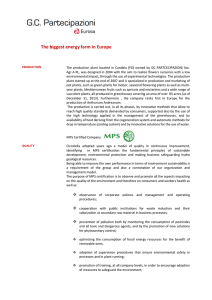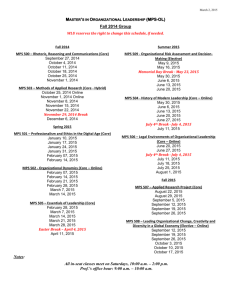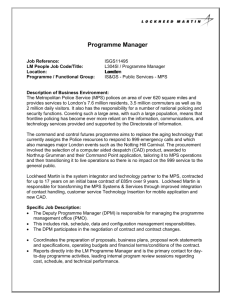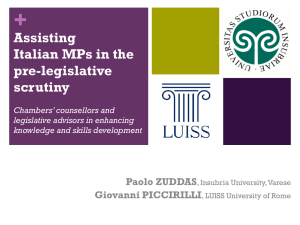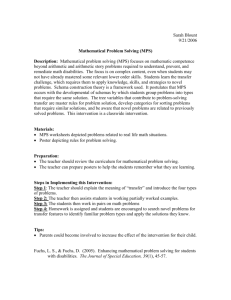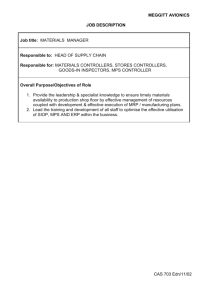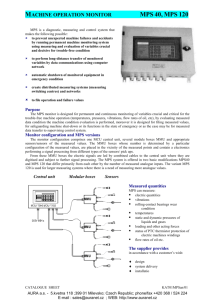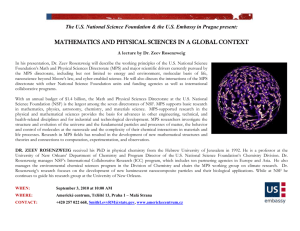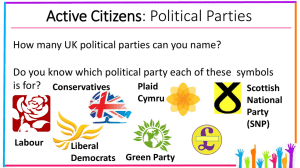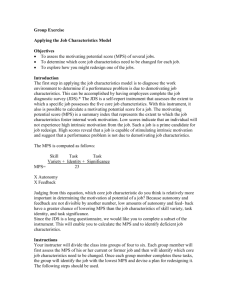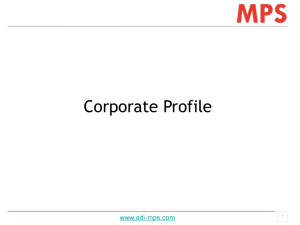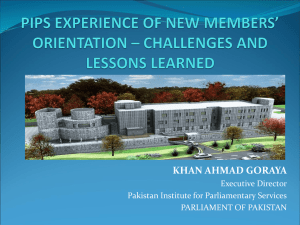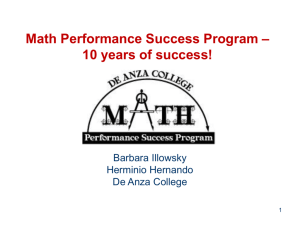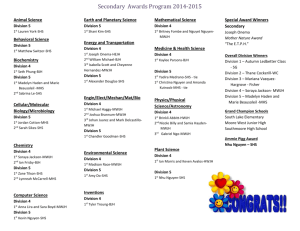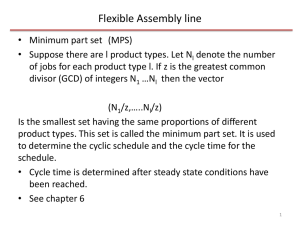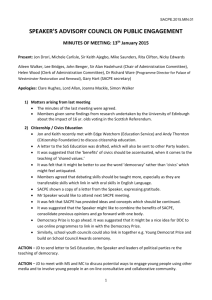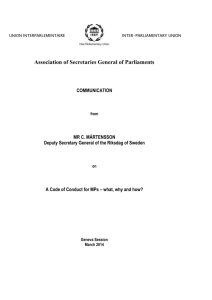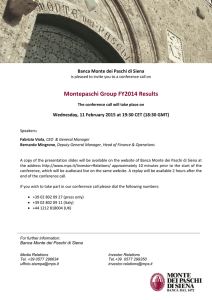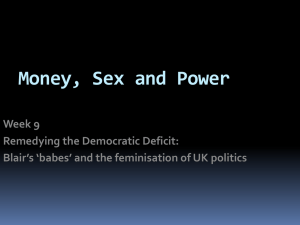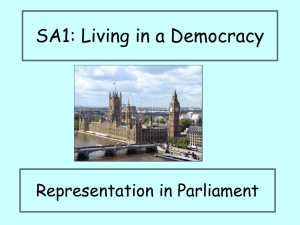A Fresh Start? The Induction of New MPs at Westminster Following
advertisement
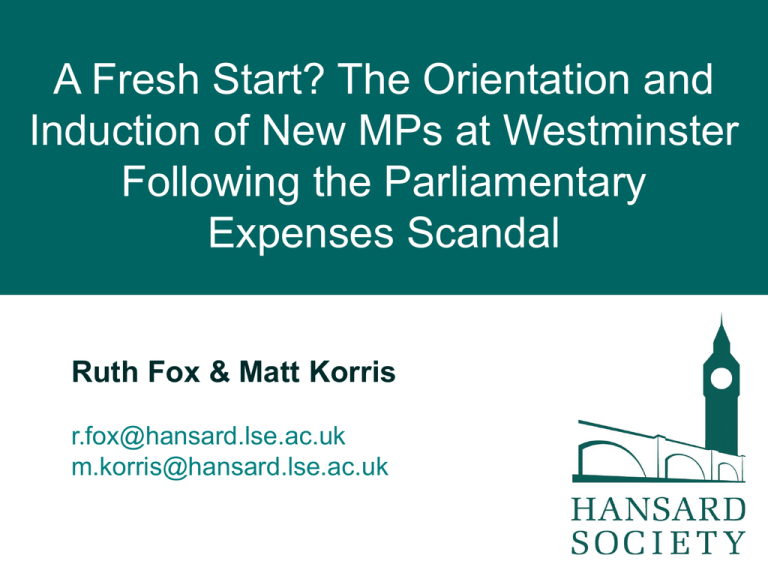
A Fresh Start? The Orientation and Induction of New MPs at Westminster Following the Parliamentary Expenses Scandal Ruth Fox & Matt Korris r.fox@hansard.lse.ac.uk m.korris@hansard.lse.ac.uk A Fresh Start At Westminster? • Recovering from the expenses crisis • Expected large turnover of MPs • Role of parties and independent bodies A Year in the Life • 2005 study – critical of the induction provision • 2010: 3 surveys, interviews / focus groups • 3 comparative studies – National Assembly for Wales – Scottish Parliament – Dail Eireann (in partnership with Dr Mary Murphy, University of Cork) Orientation Information pack – New Members’ Guidebook The 4 P’s: •Passes •Post •PC’s •Pay (IPSA) Chamber Briefing © UK Parliament Induction • Flexible timing: rolling programme of briefings • Multiple formats: on-line podcasts & downloads • Road-tested • Presentation skills training • Piloted aspects of it on by-election winners • Opportunity for party’s to comment BUT – just 19% of new MPs attended a session Difficulty of getting it ‘just right’ • Balancing the ‘Must-Haves’ & ‘Business as Usual’ • Vary the delivery: more experiential, role-play & simulation & fewer ‘talking heads’ • Action oriented: link the national to the local • Time management & ‘learning how to say ‘no’’ • Independent partners providing sessions – who and about what? • Who is responsible for areas like ‘ethics’? MPs in ‘learning’ mode? • Lack of time / competing pressures • Confidence or arrogance? High levels of perceived knowledge on arrival in Parliament • Greatest sources of advice / influence are peergroup – current and former MPs Preparing for office How much, if anything, do you feel you know about how each of the following work? (a great deal/a fair amount) 100% 93% 90% 80% 71% 70% 60% 49% 50% 41% 40% 30% 20% 10% 0% House of Commons House of Lords Political arm of government (PM, Cabinet, committees) Administrative arm of government (Civil service, departments) Sources of knowledge Where did you acquire your knowledge of Parliament and government? From my party 59% Research in my own time 56% Formal education 46% Previous employment 41% Sources of advice Preelection Postelection Current MPs 90% 98% Former MPs 61% 49% Party officials 48% 42% Friends/family 27% 25% Needs for future learning • 64% - procedural issues • 45% - how government works • 45% - IPSA’s expenses system • 41% - government finance • 38% - time management • 31% - managing staff • 31% - data protection / freedom of information Continuing Professional Development (CPD)? • Only half (49%) of the MPs in our study believe they should undertake some form of CPD BUT • Of those (56%) who had prior experience of CPD, 70% thought MPs should have undertake it What Might Help In Future? • Mentors – Greater use of peer-group: MPs / former MPs • Engage class of 2010 to help plan for 2015 • More positive engagement by parties – importance of locating ‘critical actors’ well in advance of the election For further information about the A Year in the Life study and our other related research, see: www.hansardsociety.org.uk A Fresh Start? The Orientation and Induction of New MPs at Westminster Following the Parliamentary Expenses Scandal Ruth Fox & Matt Korris r.fox@hansard.lse.ac.uk m.korris@hansard.lse.ac.uk
